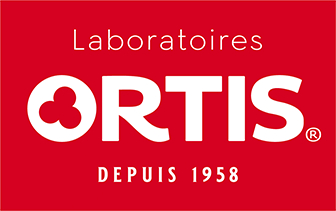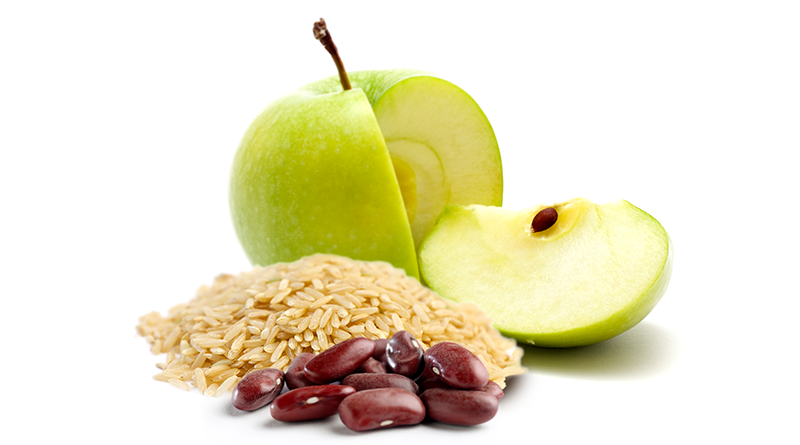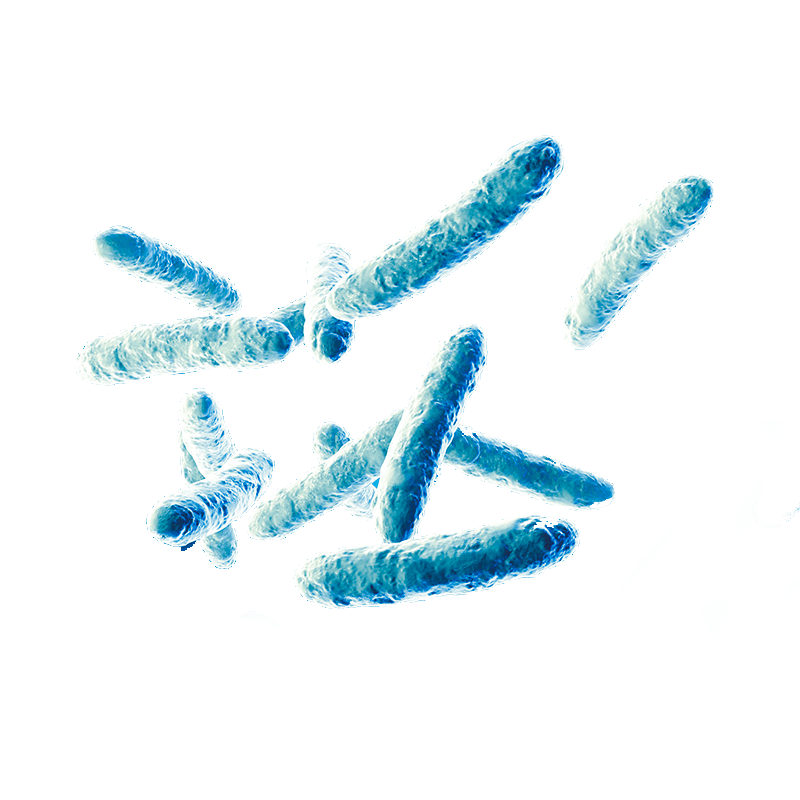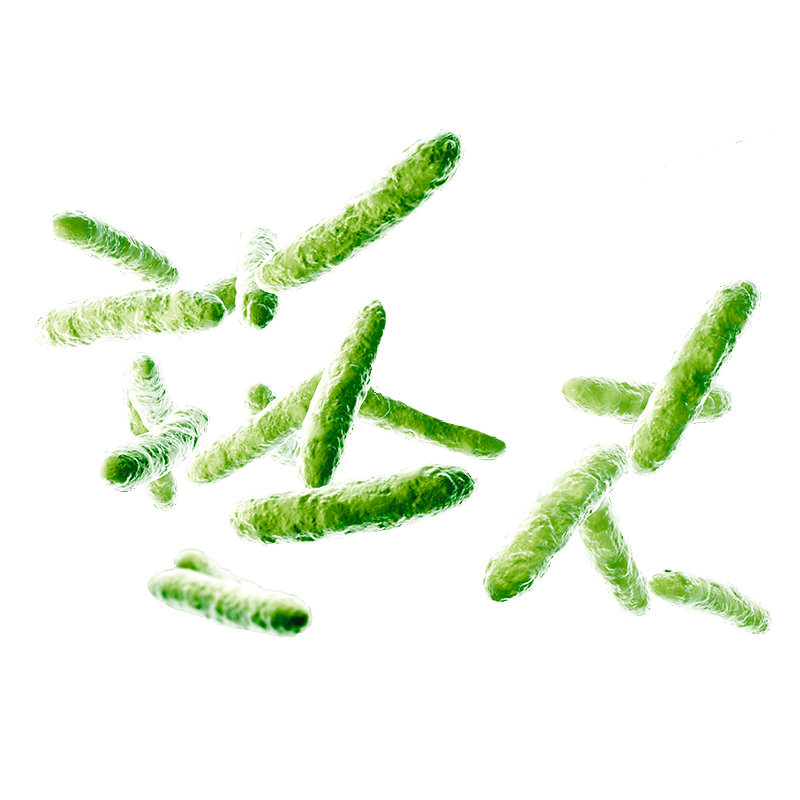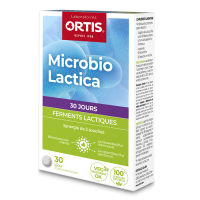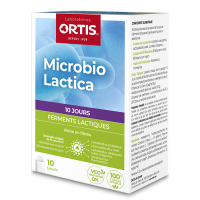Microbiota, intestinal flora: what you need to know?
The intestinal flora or gastrointestinal microbiota corresponds to all of the bacteria which live in our intestines. The intestine is populated by a hundred trillion bacteria, i.e. 10 times more than the number of cells in the whole human body. This therefore highlights the influence of the gut flora on our general wellbeing!
The bacteria which inhabit our intestines are defined as follows:
1. "Good" bacteria, or flora responsible for fermentation
These are essential:
- for proper gastrointestinal system function:
the intestinal flora completes the digestion process by fermenting food, and thus plays an essential role in intestinal transit - for proper assimilation of nutrients:
mineral absorption, synthesis of certain vitamins, etc. - for the immune system:
the bacteria constituting the intestinal flora stimulate the production of lymphocytes (the body’s defence mechanism) - for waste elimination:
elimination of toxins, cholesterol, etc.
2. "Bad" bacteria, or flora responsible for putrefaction
This type of bacteria does not really deserve its name as it is still useful. Nevertheless, to maintain a well-balanced gut flora, it should remain in the minority.

I have irregular intestinal transit…
Does this mean my intestinal flora is imbalanced? The intestinal flora has long been underestimated. Its crucial role in health has only been recognised for the past ten or so years. When its two bacterial populations become imbalanced, the entire gut flora is disrupted, with major consequences: intestinal transit disorders, such as sluggish transit, bloating, flatulence, etc.
Some of the bacteria present in our intestines (bad bacteria or flora responsible for putrefaction) produce methane. It is this gas which causes flatulence. Studies have shown that this methanogenic flora may have effects on the small intestine and on gut motility. An imbalanced flora is a risk factor for slow intestinal transit. The balance of the gut flora should therefore be considered when transit is disrupted. That's because good health starts in the intestine! Unfortunately, our modern lifestyle gives rise to numerous common factors which disrupt the balance of the microbiota: food excessively high in sugar or saturated fatty acids, dietary changes when on holiday or travelling, antibiotics (which destroy both good and bad bacteria), too much stress, medications etc. attack the intestinal flora and soon compromise its balance.
Prebiotics and probiotics
Should I take probiotics or prebiotics to rebalance my intestinal flora? The importance of intestinal flora on our health and wellbeing is therefore irrefutable. It is essential to help the flora recover from imbalance.
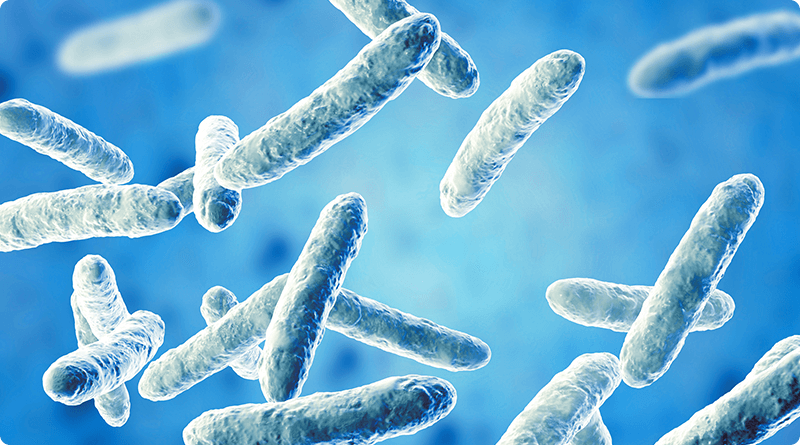
Prebiotics
These usually consist of fibres which is also essential to a well-balanced flora as it provides nutrients for probiotics. These pass undigested into the colon and thus immediately provide nutrients for bacteria. Most of the beneficial effects claimed by prebiotics are associated with an improvement in intestinal and metabolic function, for example, such as the increased production of short-chain fatty acids, or increased faecal weight (thus facilitating intestinal transit). Studies have demonstrated that prebiotics such as FOS, when combined with probiotics, increase the quantity of Bifidobacteria and Lactobacilli in the intestine, and inhibit certain potentially pathogenic bacteria. These beneficial effects on the intestinal flora have the following consequence: less flatulence and less disruption in intestinal transit. Artichoke, banana, garlic, peas, etc. are rich in prebiotics... consume without moderation!
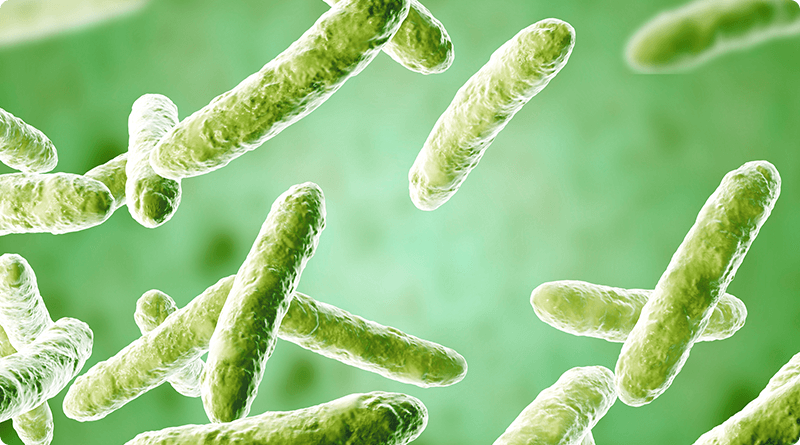
Probiotics
What have recent studies shown?
Several studies conducted on human subjects demonstrate the capacity of probiotics or lactic acid bacteria (with or without prebiotics) to accelerate intestinal transit and stimulate peristalsis. In particular, some studies on Bifidobacteria have demonstrated their capacity to reduce intestinal transit time in healthy women and in the elderly. These effects are notably observed among individuals suffering from discomfort related to irregular intestinal transit.
How do probiotics act?
Probiotics or lactic acid bacteria act by modifying the balance of the microbial flora in the intestine via the production of short-chain fatty acids, thereby making the digestive process more effective overall. Short-chain fatty acids, produced by the bacterial flora, also reduce intestinal pH, which, in turn, can modify stool consistency while stimulating intestinal peristalsis. It is therefore worthwhile reducing the proportion of these methanogenic strains in the colon and promote non-methanogenic strains, such as Bifidobacteria, Lactobacillus and S. thermophilus, among individuals suffering from intestinal discomfort (flatulence, irregular or disrupted transit, bloating, etc.).
Can my diet affect the balance of my intestinal flora?
Yes, definitely! Too many fast carbohydrates promote the proliferation of bacteria responsible for fermentation, and too much meat promotes bacteria responsible for putrefaction... Furthermore, if the diet is lacking in fibres (which is the natural source of nutrients for good bacteria), bacteria responsible for putrefaction start to proliferate, resulting in an imbalance. Hence, insufficient fibres in the diet can clearly cause transit problems in the long term.
What should I do?
It is therefore essential to rebalance the intestinal flora by adding fibres (prebiotics) and lactic acid bacteria (probiotics) to the diet, to avoid disrupting intestinal transit. Taking this type of product for 10 days per month thus reduces intestinal discomfort and allows longer intervals between episodes of difficult or irregular intestinal transit.
Useful tips
Avoid excessive intake of sugar, refined starch, saturated fats, and prioritise foods with a high lactic acid bacteria content: yogurt, raw sauerkraut, miso, tamari, kefir, etc.

Review by Catherine, aged 46:
Every time I go on holiday, my intestines stop working! I thus take a small cube of Fruits&Fibres throughout my holiday to help restore my normal rhythm. I then take probiotics for 10 days to avoid these episodes of irregular transit as far as possible.
 Belgium
Belgium
 Belgique
Belgique  België
België  France
France  Italia
Italia  Portugal
Portugal  España
España  United Kingdom
United Kingdom  Κύπρος
Κύπρος 